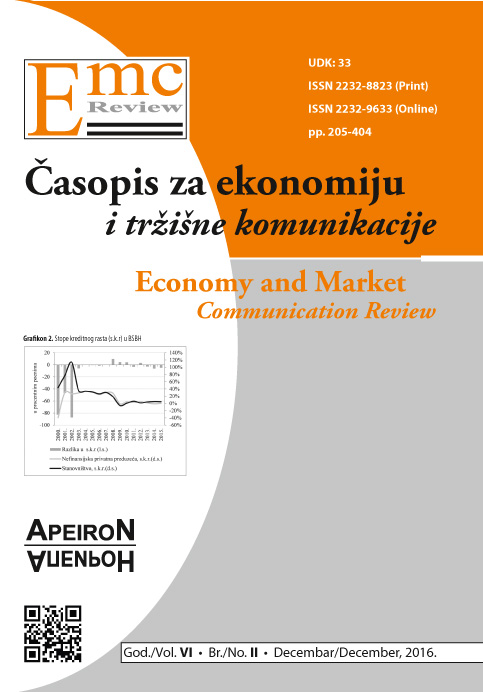THE EFFECTS OF MEGA-REGIONAL TRADE AGREEMENTS ON THE MULTILATERAL TRADING SYSTEM // EFEKTI MEGA-REGIONALNIH SPORAZUMA NA MULTILATERALNI TRGOVINSKI SUSTAV
DOI:
https://doi.org/10.7251/EMC1602212BAbstract
The aim of this study is to investigate the motives and effects of mega-regional trade agreements on the multilateral trading system using the example of Trans Pacific Partnership (TPP) and Transatlantic Trade and Investment Partnership (TTIP). Multilateralism and regionalism, although opposite trends, coexist simultaneously. While many arguments can be given for both approaches one has to recognize that the number of regional trade agreements is increasing and that regionalism is becoming a prevailing trend. The response to the regional trade agreements, especially mega-regionals, will mostly depend upon the effect on the third countries’ trade interests. Since it is expected that, over time, many of the currently excluded emerging economies will become a part of some mega-regional agreement, it is not likely that new global standards and rules will be created on a strictly regional but rather on multilateral level.Downloads
Published
2017-01-03
Issue
Section
Чланци
